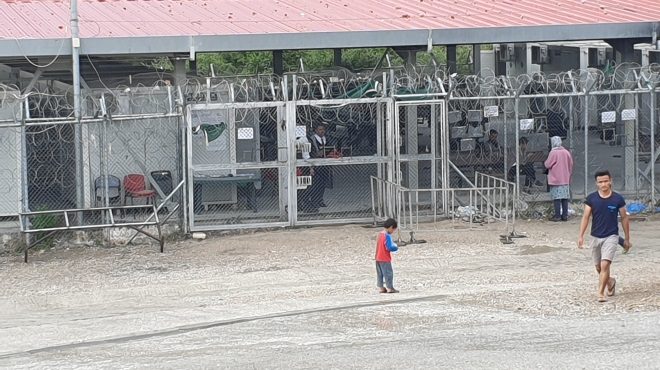News
Structural Failure: Why Greece’s reception system failed to produce sustainable solutions

Three years after the implementation of the EU Turkey Deal in March 2016, EU and Greece still struggle to address the consequences of the established status quo. Based on three examples, Refugee Support Aegean and PRO ASYL disclose the prevailing malfunction of the reception system, which still responses to emergencies only.
Despite considerable financial support from the EU, the country’s reception system still cannot cope with persisting challenges. The »human cost« upon thousands of refugees remains significant and the Greek authorities persist in following a dysfunctional patchwork approach through which temporary projects are being implemented to cover previous failures, only to add up further costs and create additional needs in the end.
In an effort to understand why this patchwork approach still prevails, Refugee Support Aegean (RSA) and PRO ASYL have examined and analysed three key issues related to the function of the country’s reception system. The analysis is presented in the study: »Structural Failure: Why Greece’s reception system failed to produce sustainable solutions«.
Based on available information and interviews, the study examines in particular
- why the Greek Managing Authority for AMIF (Asylum, Migration and Integration Fund) and ISF (Internal Security Fund) has never managed to streamline effectively regular funding for reception related projects and the practical consequences;
- why the countrywide medical project PHILOS – implemented by the National Organization for Public Health – has never fully taking off and how this has undermined reception and protection in the Greek hot-spots as well as on the mainland;
- why the stalemate on the Greek islands has led to the urgent implementation of FILOXENIA project, implemented by IOM (International Organization for Migration), with the purpose of creating temporary additional capacity to the reception system although no exit strategy was developed for the project from a start.
Ineffectiveness and political manipulations of purely administrative issues perpetuated the problems
The analysis led to the conclusion that projects and structures that should address the serious problems in the reception system had a flawed design from an early stage onwards. This triggered their problematic implementation, which produced further needs and expenses. Ineffectiveness and political manipulations of purely administrative issues perpetuated the problems and led to a patchwork of temporary interventions that have created a reception system unable to provide long term solutions and constantly responds to emergencies.
By mid-2019, the structural problems characterizing Greece’s and the EU’s management of the refugee issue in the eastern Mediterranean frontier are as vivid as always. Regular budget lines have not been established and the management of EU regular funds and emergency assistance is still a challenge. Persistent problems including the insufficient capacity of unaccompanied minors’ shelters are going to remain for the rest of the year and beyond. Meanwhile, EODY (National Organization for Public Health, replacing KEELPNO) is still struggling with recruitment of personnel for PHILOS 2. Prospects for a resolution of the major issue of not having enough doctors to man RICs on the islands and Evros as well as mainland camps are not positive.
Lack of accommodation capacity is the elephant in the room. Efforts to transfer about 30,000 accommodation places under the management of national authorities, while the country will be holding national elections in July, is certainly going to test the limits of the already inefficient reception system. RSA and PRO ASYL call to Greek authorities to engage in a holistic overhaul of the system that will make it more resilient to sudden pressures and more effective in protecting vulnerable persons. This overhaul should preserve the positive elements introduced since 2015 such as the hosting of asylum-seekers in flats provided by the countrywide housing program ESTIA (the Emergency Support to Integration and Accommodation program).
The two organisations call on the European states not to exacerbate the reception crisis by Dublin transfers and the deportation of recognised refugees to Greece.
RSA and PRO ASYL support the demands that a generous relocation program is needed. This would be an act of humanity and solidarity.